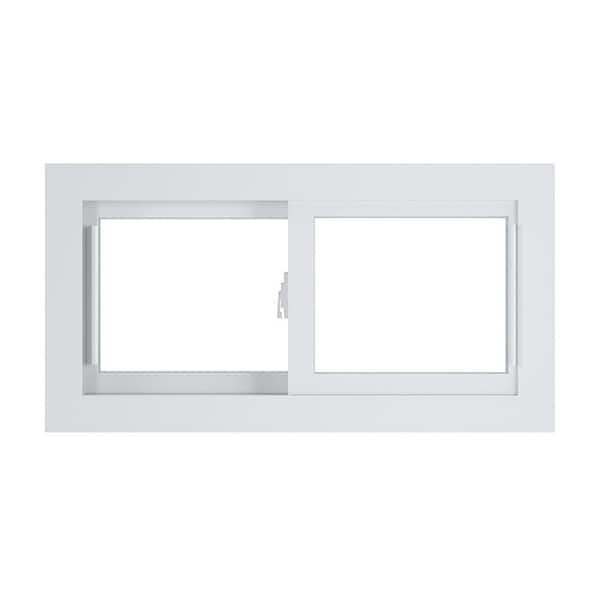Katy Window Replacement Professionals for Superior Service
Katy Window Replacement Professionals for Superior Service
Blog Article
Upgrade Your Home With Energy-Efficient Window Replacements
In the world of home renovation, the choice to upgrade to energy-efficient home window substitutes can significantly affect both the capability and visual appeals of a residence (window replacement). As homeowners seek methods to boost the effectiveness and sustainability of their space, the choice of home windows plays a critical function in accomplishing these objectives. Beyond the surface area degree of mere looks, energy-efficient windows supply a plethora of benefits that exceed mere visual allure. With a cautious selection procedure that considers different variables, from glass kinds to installation strategies, beginning on this home upgrade trip can show to be a transformative venture.
Advantages of Energy-Efficient Windows

The installment of energy-efficient home windows offers considerable financial savings on utility costs while enhancing environmental sustainability. Energy-efficient windows are developed to decrease warm loss and gain, reducing the requirement for heating and cooling systems to burn the midnight oil. By efficiently shielding the home, these windows aid maintain a comfy interior temperature year-round, leading to lower power consumption and lowered energy costs. Additionally, energy-efficient windows can assist regulate wetness levels within the home, lowering the threat of mold and mildew and mold development.
Past the financial advantages, energy-efficient windows add to ecological sustainability by decreasing carbon emissions linked with power production. Overall, investing in energy-efficient windows not just improves the comfort and effectiveness of a home however additionally aligns with ecologically aware practices.
Types of Energy-Efficient Glass
Different advanced types of energy-efficient glass deal one-of-a-kind residential properties that accommodate various requirements and preferences in enhancing the sustainability and efficiency of structures. Low-emissivity (Low-E) glass is a prominent choice created to reduce the amount of ultraviolet and infrared light that can pass via the glass, therefore lowering heat transfer. This type of glass aids preserve a consistent indoor temperature level, reducing the demand for home heating or cooling systems, and ultimately decreasing energy prices. An additional ingenious option is spectrally discerning glass, which enables visible light to travel through while blocking specific sorts of infrared radiation. This aids in preserving a comfy indoor atmosphere while minimizing heat gain. Triple-pane glass, including 3 layers of glass with insulating gas in between them, provides improved thermal insulation, making it extremely energy-efficient. Additionally, self-cleaning glass with a special covering that damages down and loosens dust when exposed to sunshine can reduce maintenance demands and keep home windows looking clean. Each kind of energy-efficient glass offers distinctive benefits, permitting property owners to pick the most ideal alternative based on their details requirements and objectives.
Aspects to Consider When Selecting
When contemplating energy-efficient home window replacements, it is imperative to meticulously evaluate specific variables that align with your sustainability purposes and desired power savings. The U-factor procedures exactly how well the home window protects, with reduced numbers indicating much better insulation, while the SHGC shows the home window's ability to obstruct heat from sunshine. By meticulously assessing these variables, you can choose energy-efficient home windows that enhance convenience, lower energy expenses, and profit the environment.
Installation and Maintenance Tips

Normal upkeep is vital to maintaining the efficiency of your energy-efficient windows. Check the windows periodically for any kind of indicators of sealer, wear, or damage degeneration. Clean the frames, tracks, and glass frequently utilizing mild soap and water to get rid of dust and gunk that can affect performance. Examine the weather-stripping and seals for any type of gaps or tears and change them if needed to keep the home windows' energy efficiency.
In addition, oil moving components such as joints and locks to make certain smooth go to website operation. By adhering to these setup and upkeep suggestions, you can improve the power performance of your home and prolong the life-span of your energy-efficient windows.
Cost-Benefit Analysis of Upgrading

Energy-efficient home windows are developed to decrease warm transfer, minimizing the requirement for heating and cooling systems to burn the midnight oil. This can result in considerable cost savings on energy costs, especially in regions with extreme temperature levels. Furthermore, energy-efficient home windows can boost the general value of your home, making it more eye-catching to prospective buyers if you decide to market in the future.
When computing the cost-benefit analysis, element in the possible cost savings on energy costs, any type of available motivations or refunds, and the lifespan of the home windows. While the preliminary cost might be higher, the lasting financial savings and benefits of energy-efficient home windows make them a wise investment for home owners aiming to improve their home's energy performance and value.

Conclusion
Finally, updating to energy-efficient window replacements uses numerous advantages such as decreased power intake, enhanced comfort, and price financial savings. By selecting the proper kind of energy-efficient glass and thinking about factors like structure product and setup, property owners can make best use of the effectiveness of their windows. Routine best windows and doors upkeep and proper setup are crucial for long-lasting efficiency. Generally, the cost-benefit evaluation of upgrading to energy-efficient windows reveals that the first investment can result in considerable financial savings in the lengthy run.
When considering energy-efficient home window replacements, it is necessary to very carefully examine details variables that straighten with your sustainability goals and desired energy financial savings. The U-factor actions just how well the home window protects, with lower numbers showing far better insulation, while the SHGC indicates the window's capability to block heat from sunlight. By carefully reviewing these factors, you can pick energy-efficient home windows that improve comfort, reduce power prices, and profit the setting.
While energy-efficient home windows might have a higher upfront price compared to conventional windows, the lasting advantages frequently outweigh the first financial investment.In final thought, upgrading to energy-efficient home window substitutes provides various benefits such as lowered power usage, increased convenience, and expense financial savings.
Report this page